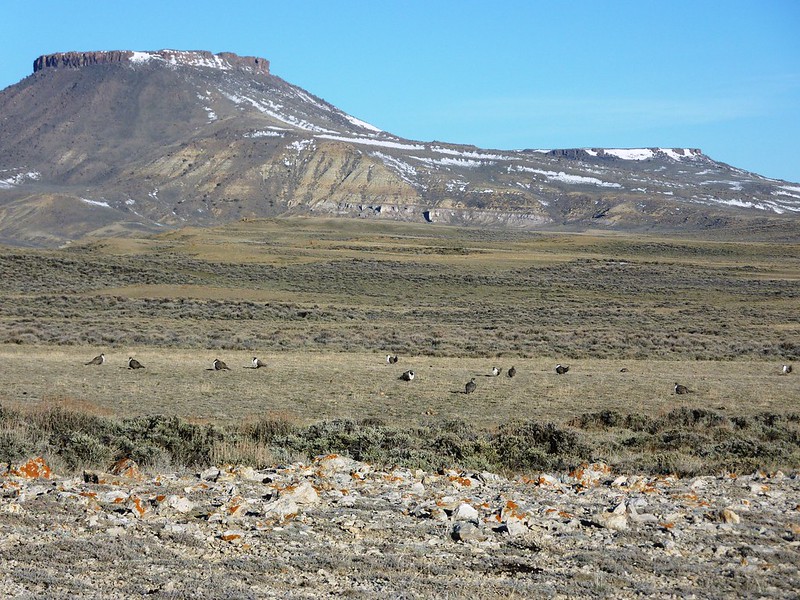
Bitterroot is partnering with the The Modern West podcast to examine the resilience of Western people and towns. This is Part 4 in the series.
Part 1: The Blackfoot Watershed: Montana’s Laboratory for Rural Collaboration
Part 2: This New Mexico Town is the Next Adventure Hub. Can it Quit Fossil Fuels?
Part 3: Out of the Wilderness: Guides are Teaming Up to Prevent Suicides
Part 5: Colville, Washington Survived the Timber Wars. Now It’s Tackling Wildfire
When entire industries halted at the onset of the COVID-19 pandemic, certain workers were called upon to continue their duties. Some commanded greater pay or respect. Grocery stores, for a time, gave in to hazard pay demands, and neighbors sheltering in place cheered each night in support of healthcare workers.
Those who labor in the fields to feed people near and far found themselves similarly deemed essential. But farmworkers, especially those who are undocumented, received few protections — let alone pay raises or nightly rallies in their name.
In March, Oregon treeplanter and farmworker union Pineros y Campesinos Unidos del Noroeste (PCUN) joined more than 100 other groups calling on government entities and community members alike to rally for undocumented workers. The coalition called for, among other actions, expanded safety training, paid sick days, housing funds, and cash assistance. After nearly three months of lobbying, state lawmakers earmarked $30 million for the Oregon Worker Relief Fund.
In the interim, PCUN launched its own fund, which has since raised more than $138,000 for farmworkers in need of assistance due to COVID-19 or the wildfires that ravaged Oregon in September. It was an alternative to the U.S. government-issued stimulus checks, which weren’t distributed to undocumented residents and their families.
From our sponsor

A new season of The Modern West podcast is exploring the evolving identity of the West though ghost towns past and present — and asking, why should we care if America’s small towns disappear?
“Undocumented workers are the backbone of Oregon’s agricultural workforce. These families are like every other Oregon family — they have hopes and dreams, and also have bills to pay,” said PCUN Executive Director Reyna Lopez. “Getting money directly in the hands of workers means they have money, right away, to pay rent and buy groceries.”
PCUN is headquartered in Woodburn, a town of 25,000 with a large and growing Latinx population. Like other small towns in the West, the Black, Indigenous, and/or people of color (BIPOC) population here has long faced exclusion from positions of power. That’s changing in Woodburn, however, thanks to a thriving network of BIPOC-led organizations like PCUN that could be a model for building political agency around the West.
Following a wave of deportations in 1977, a group of activists and farmworkers founded the Willamette Valley Immigration Project to provide legal help for migrant workers. In 1985, the group started PCUN to combat exploitation in the fields. In the decades since, PCUN, which has more than 5,000 members, has expanded to include programs for community-building and education. Its political wing advocates not just for labor and immigration rights, but also action on climate change and public health.
Farms in the Willamette Valley, the original home of the Kalapuya bands of Native Americans, produce over 170 varieties of crops each year. Woodburn is one of the region’s agricultural strongholds, and, according to census data, more than half of its residents identify as Hispanic. The share is even higher among those working in the fields: three-quarters of agricultural workers throughout the Pacific Northwest were born in Mexico or Central America, but 96 percent of farm owners are white. This yields a racial power dynamic that, for decades, has suppressed the ability of Latinx workers to command better working conditions and political agency.
This story first appeared in the Bitterroot Newsletter. Sign up below to receive our latest reporting right in your inbox.
Lopez, 33, was born to Mexican immigrants who came to central California in search of better work opportunities. In the late 1980s, the family moved to the Woodburn area to work in the booming Christmas tree industry (Oregon is the nation’s top producer). Lopez’s father connected with PCUN shortly after arriving, and the group helped him navigate the 1986 Immigration Reform and Control Act, legislation championed by President Ronald Reagan that granted nearly 3 million undocumented immigrants pathways to citizenship.
After earning a bachelor’s degree in political science at Willamette University, Lopez directed campaigns and outreach at progressive Oregon nonprofits pushing for paid family leave and other social policies. When PCUN co-founder Ramon Ramírez retired in 2018, after more than four decades of leadership, the organization tapped Lopez to take over.
“It is an honor and a privilege to serve and steward this organization and this community,” Lopez said. “Growing up, I always knew that I would go into a field that focused on delivering justice for my community.”
One person pushing for Lopez to take over was Jaime Arredondo, who at the time ran PCUN’s political wing. Arredondo had routed folks into leadership positions in Woodburn, and felt Lopez was the perfect candidate to oversee both PCUN’s union operation and its political work. Once Lopez came aboard, Arredondo shifted his focus to another role: executive director of the CAPACES Leadership Institute (CLI), an organization that trains social-justice leaders in an office next to the PCUN headquarters.
“That place where my dad stood in line to get his green card, back in 1987, is the place where I work at now,” Arredondo said. “CAPACES is an evolution of Oregon’s immigrant farmworker movement. It’s a product of 35 years of thinking, sacrifice, experimentation, and hustle. It’s a full circle for me, and a response to the need to keep the movement going. We create entry points to try and engage the spectrum of Latinos.”
CLI runs numerous programs that educate and support community leaders in Marion and Polk counties. It holds courses on basic leadership principles and fundraising, and establishes yearlong forums for small groups of local leaders. Its TURNO internships prep Latinx youth for a future in leadership, while the People’s Representatives program trains and supports folks seeking spots in neighborhood committees, school boards, or elected office.
Daysi Bedolla Sotelo, PCUN’s organizing director, is a product of this community-cultivated leadership model. Bedolla Sotelo’s family immigrated to Woodburn from Mexico when she was 12, and she grew up working alongside her parents in the fields. Her passion for political action was lit in 2012 with the creation of the Deferred Action for Childhood Arrivals (DACA) program, granting protection from deportation for undocumented youth, like her, who had been brought to the United States by their parents before the age of 16. The election of Donald Trump in 2016 cemented her career trajectory.
“It became very clear that we need to get more people out to vote,” Bedolla Sotelo said. “[Marginalized communities] are constantly being left behind, but we are very powerful. I wanted to educate my community and help more people get out to vote because I can’t.”
Soon after, she launched a club for undocumented students at Eastern Oregon University, and was elected student body president. She was hired at PCUN fresh after graduation.
“I had been a part of meetings and programs at CAPACES. I had used PCUN’s services in high school,” Bedolla Sotelo recalled. “And now, I get to work with my community.”
The pandemic has put a spotlight on the political power Woodburn’s coalition of Latinx leaders has been amassing. State Representative Teresa Alonso León, who in 2016 became the first Latina immigrant elected to the statehouse, represents Woodburn. As her district became the state’s early COVID-19 hot spot, Alonso León pushed for enhanced protections for essential workers, especially those who are undocumented.
“My district, my community, and my city is made up of working families, and many of them are essential workers who are literally risking their [lives] to keep Oregon moving forward,” she told Oregon Public Broadcasting. “Many of them have no choice but to work because they don’t have the privilege of staying home.”
Thanks to lobbying from Alonso León and groups like PCUN, a state-backed fund was created to financially protect agriculture workers in the event they had to quarantine themselves. The Oregon Worker Relief Fund offers agricultural workers — many of whom lack paid time off, sick leave, or eligibility for federal coronavirus relief — up to $1,290 in income replacement if they have to take time off because of COVID-19 exposure.
Such major political victories — and the fact Latinx leaders are the ones advancing solutions — puts Woodburn at the vanguard of a political change taking place in both Oregon and the broader West. Latinx people have made up more than half of the nation’s population growth over the last decade, and this is by no means a solely urban phenomenon. An analysis by Headwaters Economics found that 99 percent of rural Western counties saw increases in BIPOC and immigrant populations from 1980 to 2015. In about 40 percent of rural counties, BIPOC population growth slowed or even halted overall population declines.
In most of these places, positions of power in both the public and private sector are held by white people, even when they constitute a demographic minority. That remains the case in Woodburn, too — just one member of the city council is Latinx, and there are no Hispanic people on the Marion County Commission. What’s clear in the stories of leaders like Lopez, Arredondo, Leon, and Bedolla Sotelo, though, is that there is a growing wave of leadership in the Latinx community here.
“Oregon is very relational and, thus far, the political power has been concentrated in the hands of the parties and the unions,” said Ana del Rocío, executive director of Oregon Futures Lab, a Portland-based group that cultivates and advises BIPOC political candidates around the Northwest. “The community-based pipeline is much less established and developed in Oregon than in other places in the country. What we’re trying to accomplish in our work is to make that independent community-based power much more potent.”
One dash of potency could come from emerging leadership networks that aren’t racially siloed, del Rocío said. “We can forget when we are plunged into this Black/white binary Oregon story that Latinx isn’t a third option. Latinx can be white and Black and Indigenous. … The umbrella is too narrow right now, and we don’t have niche issues to be dismissed. Transportation, school, immigration, childcare policies are all Latinx issues.”
That’s evident in PCUN’s political work. Amid a pandemic and a rancorous campaign season, the organization has coordinated more than 7,000 calls to potential voters. They have endorsed 27 candidates and two ballot measures. In addition, PCUN has served 658 families with supplies in light of a devastating fire season, and is collecting testimony in a bid to phase out a toxic insecticide.
“We are working hard to make sure our Latinx community knows the importance of this election by holding forums and partnering up with other organizations,” Bedolla Sotello said.
All of this has Lopez working on both the acute problem of COVID-19 relief, as well as the issue that brought her own father into the PCUN office nearly 40 years ago.
“We need a permanent solution for families that are left out of vital emergency relief,” Lopez said of the undocumented workers shut out of federal COVID-19 relief. “For now, we took it into our own hands to ensure our community doesn’t go into financial ruin. But in the long term we need comprehensive immigration reform that allows workers to have a pathway to legalization.”
Support independent Western journalism
Worth a Read
Top stories from around the West
Wyoming’s largest hospital has opened a COVID-19 surge unit. Daily infections are at an all-time high in New Mexico. Utah contact tracers are simultaneously overwhelmed and shunned. Transmission rates are climbing in Los Angeles County, and Colorado has its highest number of active outbreaks yet. The pandemic is taking a scary turn in the West. Stay safe, folks.
•••
Some key forecasts heading into election day, courtesy of FiveThirtyEight: Biden and Democratic Senate candidate Mark Kelly are leading in Arizona. Incumbent Republican Senator Steve Daines is up in Montana, as is former Governor John Hickenlooper in Colorado’s Senate race.
•••
This is interesting — California is utilizing an “equity metric” to determine whether counties can ease coronavirus restrictions. In an LA Times op-ed, two members of the state’s Task Force on Business and Jobs Recovery say the requirement that disadvantaged neighborhoods within a county meet certain testing and tracing thresholds is a model other states should adopt.
•••
Soon, Black Portlanders with certain chronic diseases could get a free membership to the city’s e-bike plan, The Oregonian reports. Great idea — cycling boosts physical and mental health — but the “prescribe a bike” language is a bit paternalistic, in my mind.
•••
If Seattle is any indication, the restaurant and hospitality business is going to experience some permanent shake-ups. The New York Times zeroed in on the city’s big-name restaurateurs, showing that even the biggest players in a wealthy city’s dining scene are being hammered during the pandemic.
•••
Phoenix temperatures have hit 100 degrees or more on *gulp* 143 days this year, tying a record set in 1989. “As if 2020 didn’t have enough to be remembered by,” the Arizona Republic’s Jamie Landers writes.
•••
“When I heard the staticky voice announce that temperatures would exceed 105 degrees, the forecast sounded like a death sentence.” Jordan Thomas, a Ph.D. candidate in anthropology and wildland firefighter, reflects on climate change. Please give this a read.
•••
There’s a surge in demand for Northwest cranberries. You know why.
Love this newsletter? Spread the word.
Your Land
An ode to the public lands we share

Share with a friend | Watch a cat video | View previous newsletters

